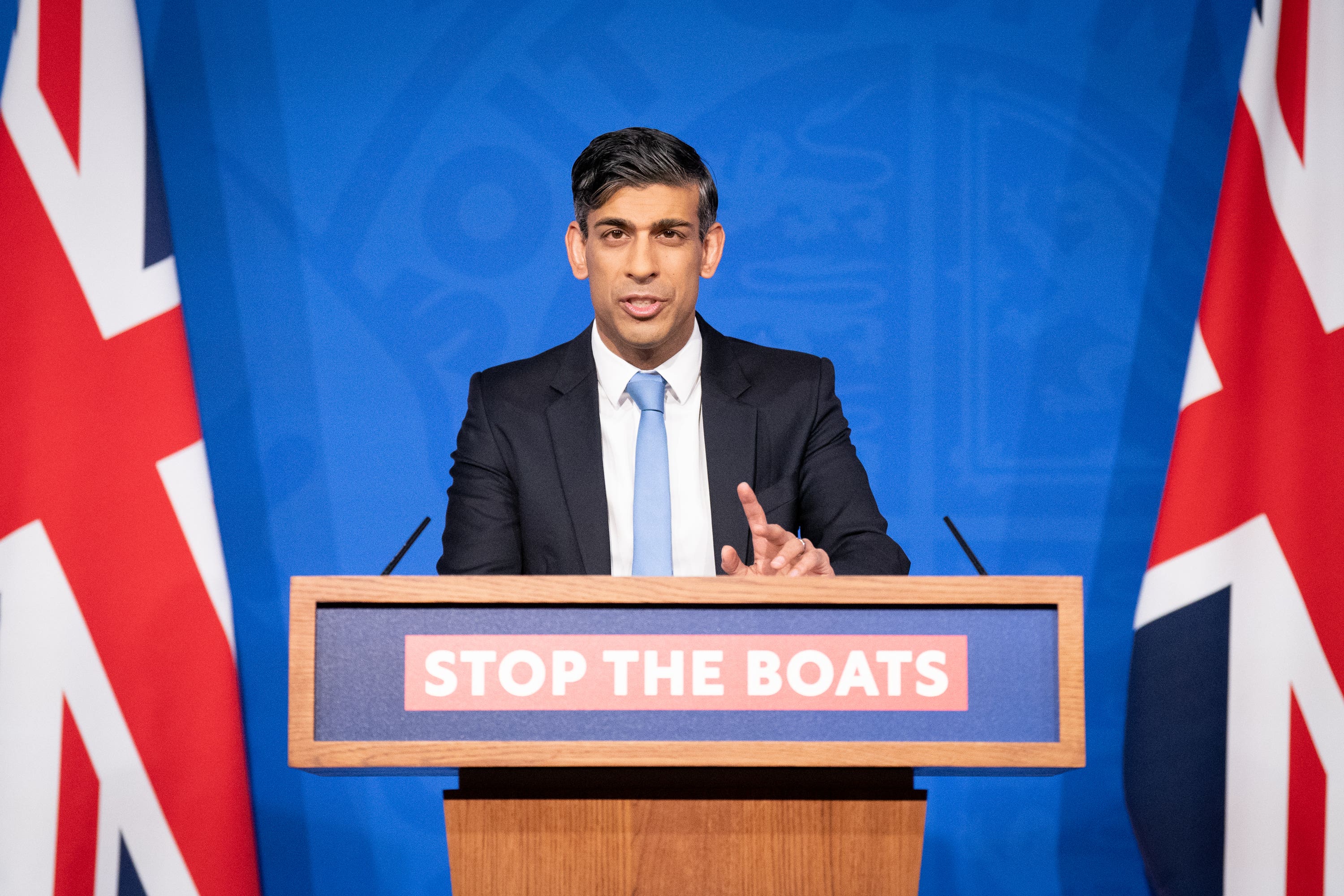The Home Office Rwanda stance is a riddle without a solution
The Home Office has granted asylum to Rwandan refugees at the same time as arguing the country is a safe destination for asylum seekers. Kate Devlin analyses what this means for Rishi Sunak’s flagship policy to ‘stop the boats’ crossing the Channel


How can the UK declare a country both safe and unsafe – all at the same time? If all this sounds like a riddle, it should not.
At least according to the Home Office, which appears to have been arguing both things about Rwanda. The UK has, it’s emerged, given asylum to Rwandan refugees on the grounds that their fear of persecution in their home country is “well-founded”, at the same time as arguing that the country is safe for asylum seekers.
Why is the UK granting asylum to Rwandan refugees important?
The issue goes to the fundamental question currently plaguing Rishi Sunak’s flagship ‘stop the boats’ policy.
The prime minister is fighting to save his plan to deport asylum seekers to the African nation after the Supreme Court declared it unlawful last year. The basis of that judgment, by the highest court in the land, was that Rwanda was not a safe country.
Since then the government has unveiled a new treaty and emergency legislation that declares Rwanda safe, in a bid to rule out further domestic court challenges.
What do the asylum grants mean for the Rwanda policy?
The decisions to grant asylum, made recently by the Home Office, dent the government’s claims it has dealt with the Supreme Court’s concerns.
They may also galvanise opposition to the Rwanda Bill when it faces a significant challenge in the Lords on Monday. Peers are expected to amend the legislation against the government’s wishes. This will set up what is known as “ping pong” where a bill bounces between the two chambers getting amended and unamended. This will delay any changes, creating further havoc for Mr Sunak, who is desperate to get what he believes is a vote-winning gambit – flights in the air – as soon as possible.
Will the policy be blocked?
Ultimately, nothing is likely to change the fact that the bill will eventually pass parliament.
Blocking the bill would require Labour’s support and the party is not keen to set what it sees as a hugely dangerous precedent. That is, to allow the unelected House of Lords chamber to block policy that has been passed by elected MPs. They are especially keen not to set that precedent in an election year.
But the Lords can still inflict damage on the government by holding up the passage of the bill and delaying it from becoming law. After that there are still hurdles to overcome, including the expected court appeals by individuals selected to be sent to Rwanda. Mr Sunak himself has also talked up the prospect of a battle with Strasbourg, warning that he will not let a foreign court stop his plans.
Whether Mr Sunak can achieve what his former home secretary, Suella Braverman, once described as her “dream” – to see a plane carrying asylum seekers take off for Rwanda – before voters go to the polls, if at all, remains to be seen.
Join our commenting forum
Join thought-provoking conversations, follow other Independent readers and see their replies
Comments
Bookmark popover
Removed from bookmarks